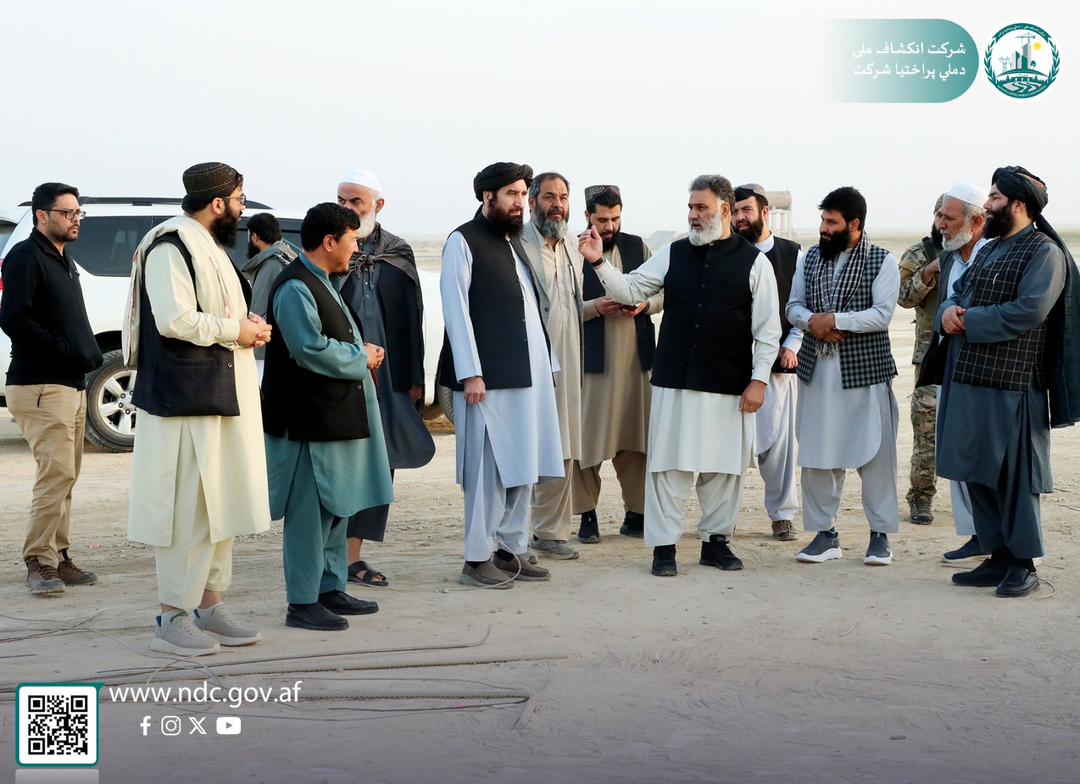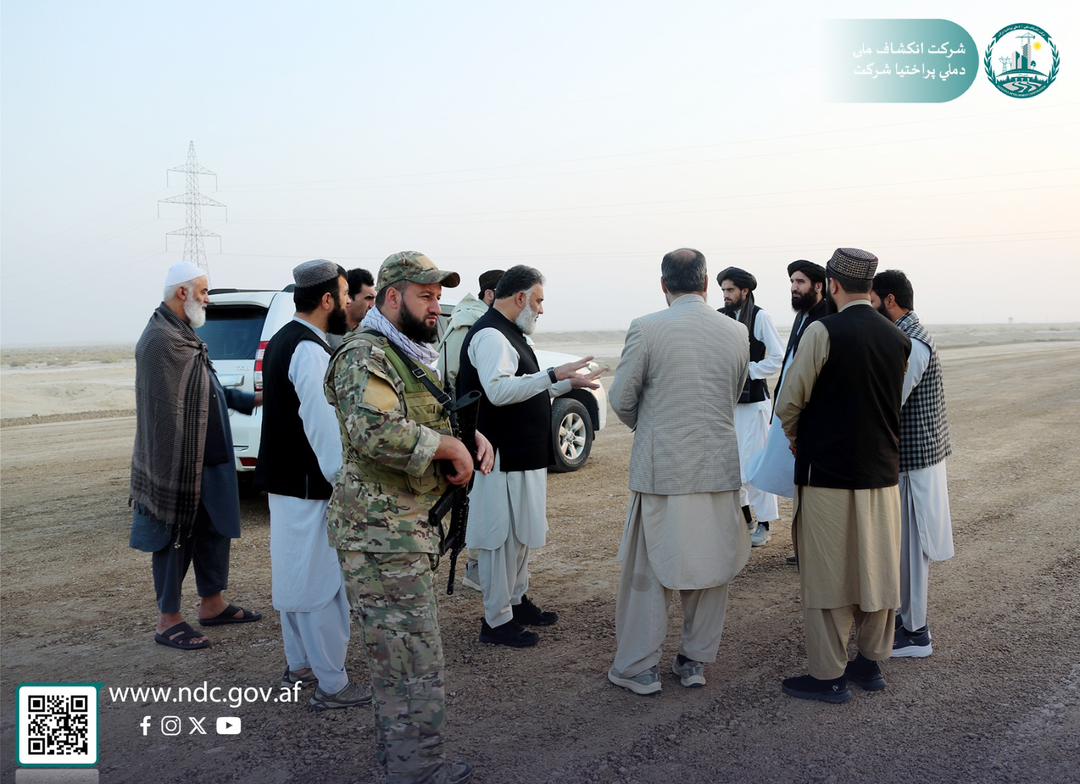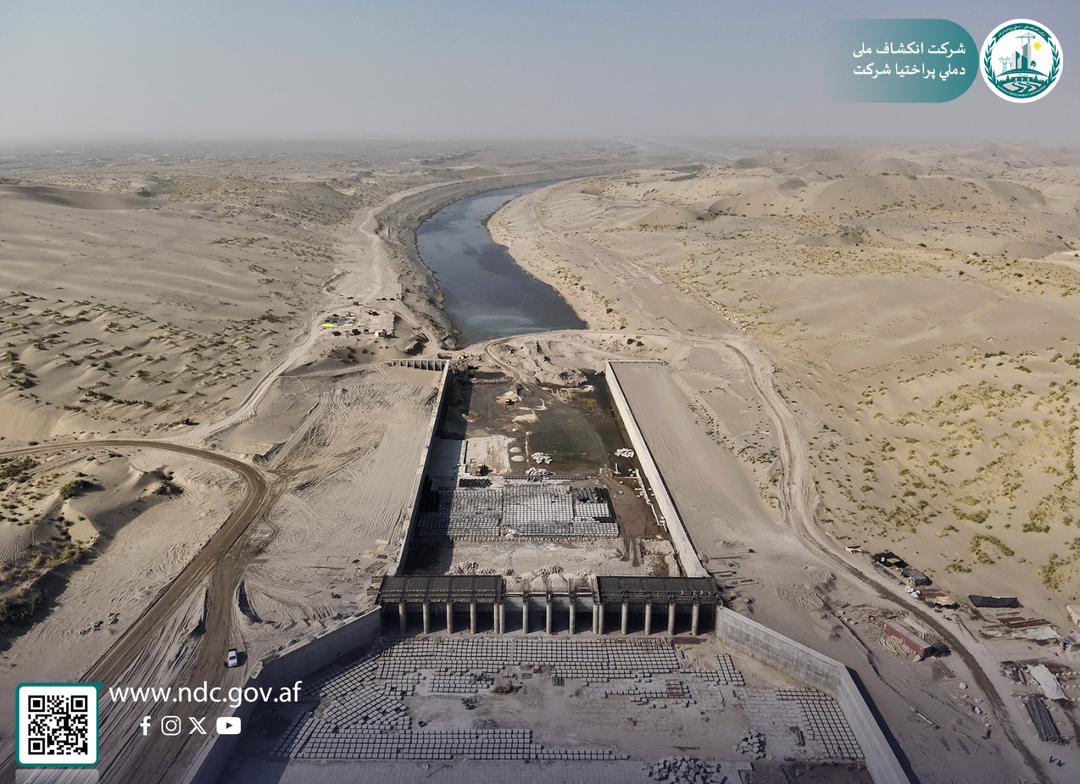October 29, 2025: With the second phase of the Qosh Tepa Canal excavation approaching completion, Mawlawi Ahmad Jan Bilal, Chairman of Emirati Companies, and Abdul Rahman Atash, Chief Executive Officer of the National Development Corporation (NDC), led a high-level delegation to the northern provinces to assess the progress of this major national project.
During the visit, Mr. Atash and his technical team inspected the canal’s dam, Phase Two excavation works, and other critical components, closely monitoring the ongoing activities on-site. He expressed satisfaction with the overall progress and urged project officials to ensure that all works are executed professionally, in accordance with the approved technical standards, plans, and timelines—so that the project’s key milestones are achieved without delay.
Meanwhile, Mawlawi Ahmad Jan Bilal also toured the site and emphasized that the primary objectives of this landmark national initiative are the equitable management of Afghanistan’s water resources, the enhancement of agricultural productivity, and the improvement of local economic conditions.
He commended the quality and pace of the work, noting that the Qosh Tepa Canal represents a historic opportunity for Afghanistan’s long-term economic growth. He further stressed the importance of collective responsibility and cooperation to ensure its successful completion.
At present, construction on the dam is approximately 85% complete, while excavation and filling works for Phase Two have reached around 95% completion. Additionally, several bridges and water control structures along the canal’s route are under active construction.
The Qosh Tepa Canal Project is one of Afghanistan’s most significant and strategic development undertakings. Originating from the Amu River, the canal will supply water to thousands of hectares of farmland across Balkh, Jowzjan, and Faryab provinces—helping to alleviate water scarcity. Once completed, it is expected to substantially increase agricultural output, improve rural livelihoods, and promote the equitable and sustainable management of the nation’s water resources.




